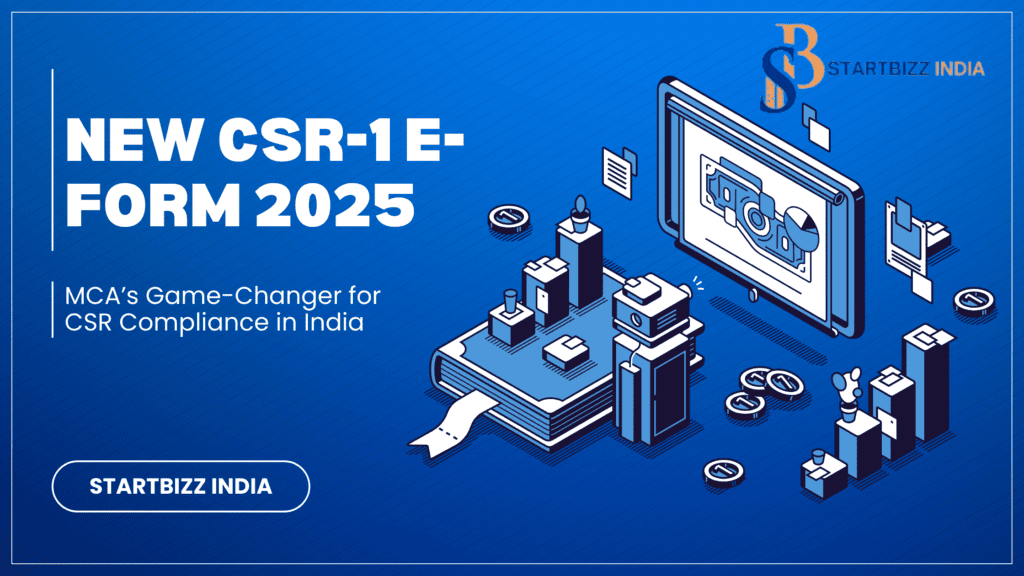Embark on your journey of social impact with StartBizzIndia.com – Your Trusted Partner for NGO Registration in India!
Unlock the potential to receive tax-exempted grants, donations, and funding from governmental and non-governmental organizations by registering your NGO with us. Our comprehensive services ensure a hassle-free registration process, empowering you to focus on driving positive change and addressing societal issues.
➔ Initial consultation to assess subsidiary registration requirements
➔ Assistance with company name reservation and registration
➔ Preparation and filing of incorporation documents
➔ Guidance on corporate governance and compliance obligations
➔ Support in obtaining necessary licenses and permits
➔ Regular updates on the incorporation process and timeline
➔ Provision of incorporation certificate and ongoing compliance support
Gain Access: Instant Quote & Free Expert Consultation with Just a Few Clicks
Why Choose StartBizzIndia.com for NGO Registration?
- Initial Consultation: Personalized consultation to assess your NGO registration requirements, guiding you through every step.
- Document Drafting Assistance: Experts assist in drafting and preparing all necessary documents, ensuring legal compliance.
- Legal Structure Guidance: Expert advice on choosing the appropriate legal structure for your NGO, whether it’s a Trust, Society, or Section 8 Company.
- Government Approvals Support: Assistance in obtaining necessary approvals and registrations from government authorities.
- Timely Updates: Regular updates on the registration process and timeline, ensuring transparency and peace of mind.
- Objection Handling: Prompt assistance with any objections or queries from authorities to expedite the registration process.
- Registration Certificate Provision: Upon successful registration, receive your certificate promptly along with ongoing compliance support.
NGO Registration in India: Your Path to Social Impact
Non-Governmental Organizations (NGOs) play a crucial role in fostering positive change, advocating for the underprivileged, and addressing societal issues. The foundation of every impactful NGO lies in its legal establishment – a process known as NGO registration. At StartBizzIndia.com, we understand the significance of this process and offer comprehensive guidance to help you navigate it seamlessly.
Types of NGO Registration in India
In India, NGOs can be registered under different legal structures, each with its own set of requirements and benefits. Here’s an overview of the three primary types of NGO registration:
Trust Registration:
Process Overview:
- Drafting a Trust Deed
- Appointment of trustees
- Submission of registration documents to the Registrar of Trusts
- Obtaining tax exemptions under Section 12A and 80G
Documentation Requirements:
- Address proof (electricity/water bill)
- Identity proof of at least two trustees (Voter ID, Driving License, Passport, Aadhaar Card)
Society Registration:
Process Overview:
- Drafting a Memorandum of Association (MoA) and By-laws
- Formation of a Governing Council
- Submission of registration documents to the Registrar of Societies
- Obtaining tax exemptions under Section 12A and 80G
Documentation Requirements:
- Name of the society
- Address proof of the office
- Identity proof of all nine members (Driving License, Passport, Voter ID, Aadhaar Card)
Section 8 Company Registration:
Process Overview:
- Drafting the Memorandum and Articles of Association
- Formation of a Board of Directors
- Submission of registration documents to the Registrar of Companies (ROC)
- Obtaining tax exemptions under Section 8(1) and 12A
Documentation Requirements:
- Name of the Company for approval
- Address proof of the office
- Identity proof of all directors (Driving License, Passport, Voter ID, Aadhaar Card)
Difference Between Trust, Society, and Section 8 Company
| Criteria | Trust | Society | Section 8 Company |
|---|---|---|---|
| Legal Framework | Indian Trust Act of 1882 | Societies Registration Act, 1860 | Companies Act, 2013 |
| Main Objective | Charitable activities | Public welfare activities | Promotion of science, arts, sports, etc. |
| Membership | Trustees | Members | Shareholders |
| Governing Body | Board of Trustees | Governing Council | Board of Directors |
| Governing Rules | Trust Deed | Memorandum and By-laws | Memorandum and Articles of Association |
| Registration Authority | Registrar of Trusts | Registrar of Societies | Registrar of Companies (ROC) |
| Tax Exemption | Section 12A and 80G | Section 12A and 80G | Section 8(1) and 12A |
Classification of NGOs in India
NGOs in India can be classified based on their orientation and level of operation:
By the Level of Orientation:
- Charitable Orientation
- Service Orientation
- Participatory Orientation
- Empowering Orientation
By the Level of Operation:
- Community-Based Organization
- City-Wide Organization
- National NGOs
- International NGOs
Why Is NGO Registration Required?
- Credibility: Registered NGOs gain credibility, attracting donors, collaborators, and supporters.
- Operational Development: Enables local operations to expand, leading to greater exposure and increased community impact.
- Resource Expansion: Eligibility for income tax exemption makes NGOs more appealing to potential volunteers and contributors.
- Tax Benefits: NGOs registered under the Income Tax Act of 2013 in India enjoy various tax benefits.
- Asset and Liability Management: Registered NGOs can own assets, incur liabilities, and manage interest-earning claims.
- Stamp Duty Exemption: Section 8 companies are exempt from stamp duty, offering additional avenues for tax savings and resource allocation.
Benefits of NGO Registration
- Tax Exemption: NGOs registered under Sections 12A and 80G of the Income Tax Act enjoy tax benefits.
- Asset Ownership: Registered NGOs can acquire, retain, and sell assets.
- Transparent Financial Operations: Operating a bank account under the NGO’s name ensures transparency.
- Enhanced Credibility: Registration elevates the credibility of NGOs, attracting collaborators and donors.
- Stability and Succession: A registered NGO is perceived as more stable, with provisions for perpetual succession.
- Access to Credit: Registered NGOs can secure loans for various initiatives.
- Name Preservation: Registration protects the NGO’s name, preventing unauthorized use.
- Bank Account Necessity: A registered NGO can operate through a corporate bank account, instilling confidence in donors and stakeholders.
Eligibility to Start an NGO
The eligibility criteria to start an NGO vary based on the chosen legal structure. Here are some general requirements:
- Private Limited Companies: Minimum of two directors.
- Public Limited Companies: Minimum of three directors.
- Private Limited Companies: Can have a maximum of 200 members, while there is no member limit for public limited companies.
NGO Registration Process
- Type Determination: Choose the suitable NGO structure – Trust, Society, or Section 8 Company – based on your organization’s objectives.
- Name Selection: Choose a unique name reflecting your mission.
- Drafting MoA and AoA: Prepare the Memorandum and Articles of Association.
- Governing Body Formation: Establish a governing body or managing committee.
- Registered Office Designation: Provide an official address for communication.
- Documentation Preparation: Gather required identity proofs, address proofs, and photographs.
- Registration Application Submission: Submit the application to the relevant authority – Registrar of Trusts, Registrar of Societies, or Registrar of Companies.
- Review and Approval: Await review, with possible clarification requests.
- Registration Certificate Obtention: Upon approval, obtain the registration certificate.
- Tax Exemption Application: Apply for tax exemptions under relevant sections.
- Compliance and Reporting: Adhere to statutory requirements, including accounts maintenance, annual returns filing, and audited financial statements submission.
Registration Fees
The registration fee varies based on the country, type of NGO, and governing body requirements. Additional expenses may include documentation, legal compliance, and regulatory requirements.
How to Raise Funds for NGOs?
NGOs can raise funds through various avenues, including:
- Crowdfunding: Solicit small donations from a large audience through online platforms.
- Grants: Apply for grants from government agencies, private foundations, and international organizations.
- Corporate Partnerships: Partner with companies sharing your values for sponsorship and support.
- Fundraising Events: Organize events like charity walks, concerts, auctions, or online campaigns to attract donors.
- Individual Appeals: Appeal to individuals through online donation portals or direct outreach.
- Social Media Outreach: Leverage social media platforms to create awareness and reach potential donors.
Why Choose StartBizzIndia.com?
- 250+ Experts: Benefit from the expertise of our experienced professionals who guide you through every step of the registration process.
- Google Rating: With a stellar 4.9-star Google rating, we are trusted by clients across India.
- 24/7 Assistance: Get round-the-clock assistance and support from our dedicated team of experts.
- Quick and Easy Process: Our streamlined process ensures a quick and hassle-free registration experience.
- Complete Online Process: Enjoy the convenience of completing the entire registration process online, saving time and effort.
FAQs
What is NGO registration, and why is it necessary?
NGO registration is the legal process of establishing a non-governmental organization to carry out philanthropic activities. It is necessary for credibility, tax benefits, and operational legitimacy.
What are the types of NGO registration structures in India?
NGOs in India can be registered as Trusts, Societies, or Section 8 Companies.
How is a Trust registered?
A Trust is registered by drafting a Trust Deed, appointing trustees, and submitting registration documents to the Registrar of Trusts.
What is the process for Society registration?
Society registration involves drafting a Memorandum of Association (MoA), forming a Governing Council, and submitting registration documents to the Registrar of Societies.
How is a Section 8 Company registered?
A Section 8 Company is registered by drafting Memorandum and Articles of Association, forming a Board of Directors, and submitting registration documents to the Registrar of Companies (ROC).
What is the difference between Trust, Society, and Section 8 Company?
Trust, Society, and Section 8 Company differ in their legal frameworks, objectives, membership, governing bodies, registration authorities, and tax exemptions.
Can NGOs be classified based on their orientation and level of operation?
Yes, NGOs can be classified based on their orientation (charitable, service-oriented, participatory, empowering) and level of operation (community-based, city-wide, national, international).
How long does it take to register an NGO?
The registration timeline varies based on the chosen legal structure and the efficiency of the registration authority.
Are there fees associated with NGO registration?
Yes, registration fees vary based on the type of NGO, governing body requirements, and other factors.
How can NGOs raise funds?
NGOs can raise funds through various avenues such as crowdfunding, grants, corporate partnerships, fundraising events, individual appeals, and social media outreach.
Start Your NGO Registration Journey with StartBizzIndia.com Today!
Empower your mission of social change and community upliftment with seamless NGO registration services from StartBizzIndia.com. Our team of experts is dedicated to supporting you at every step, ensuring a smooth and successful registration process. Submit your details now to receive an instant all-inclusive quote and a FREE expert consultation. Let’s make a difference together!
Dividend Distribution by a Closely Held Private Limited Company — A Complete Guide by a Company Secretary
StartbizzindiaCorporate Law Advisor – StartBizzIndia Introduction One of the most common questions that arise in…
SEBI’s New Guidelines on Related Party Transactions: Complete Compliance Guide for Listed Companies
Startbizzindia1. Introduction Related Party Transactions have always been an area of intense regulatory focus in…
POSH (Sexual Harassment of Women at Workplace) Act: what every company must do, procedure to follow, and consequences of non-compliance
StartbizzindiaEvery workplace in India with 10 or more employees must prevent sexual harassment, set up…

RBI FIRMS Portal Update 2025: What Indian Businesses Must Know
StartbizzindiaThe Reserve Bank of India (RBI) has introduced significant enhancements to the FIRMS portal, effective…

PRAVAAH & FIRMS Portal 2025: Unlocking India’s Digital Compliance Revolution
StartbizzindiaIndia is witnessing a digital compliance revolution that’s transforming how businesses engage with regulators. With…

New CSR-1 e-Form 2025: MCA’s Game-Changer for CSR Compliance in India
StartbizzindiaNew CSR-1 e-Form 2025: MCA’s Game-Changer for CSR Compliance in India The Ministry of Corporate…
